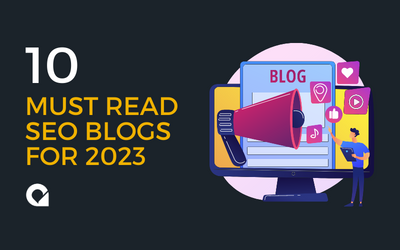Managing Your Multi-location SEO
Managing your local Search Engine Optimization (SEO) can be a challenge as is, but how do you manage multiple locations? How do you help Google differentiate each location when they are so similar?
In this guide, Digital Giants will help you understand what goes into your local SEO and how to make each location stand out from other local businesses on local SERPs (Search Engine Results Page).
Create Unique Location Pages
The first thing you will want to do is create individual pages for each location you have. This will provide each location with its own opportunity to rank in local search results. While each page should be unique it is important to include the following business information.
- Location name, address, hours and phone number (NAP)
- A Google map that provides the precise location
- Content that is unique to the location ( News, awards, manager names, photos)
Each page should be optimized individually as well. It is important that each page has its own unique URL, meta description, and other tags. You will want to include location-specific keywords.
- www.yoursite.com/location-a
- www.yoursite.com/location-b
- www.yoursite.com/location-c
Make sure these pages are included in your site map so Google can discover them.
Google My Business
Google My Business has become the most important ranking factor for local SEO. Thankfully Google My Business is a free service from Google. If you have multiple locations, you will want to create unique listings for each location. Each listing will need to be verified and optimized.
When you are setting up each location you will want to make sure you:
- Verify each location ( takes just over a week)
- Include hours of operation for each location
- Set the category for your business (make sure each location is the same)
- Upload location-specific photos and videos to help users find your location
Markup Your Site With Schema
To help Google understand your website it is important to make the information easy to find. Thanks to schema markup there is a way to help search engines find the information they need and can help boost your search rankings. Schema Markup provides a way to structure data on your website in a way that is recognizable by major search providers.
How Does Schema Markup Work?
Schema Markup helps search engines understand your website by using different types of markup. There are 100’s of different markups including:
- Event
- Articles
- Place
- Product
- People
- Reviews
- Local business
Using Schema Markup will help differentiate your location pages from one another. Search engines will have an easier understanding of their differences, such as location. A simple way to add Schema Markup to your site without coding is it use Google Tag Manager. This guide provides step-by-step instructions to help.
Build Local Citations
Once you have your pages created and your Google My Business listings verified, you will want to start creating citations, a citation is an online reference to your business’s name, address and phone number (NAP). When creating these it is important each citation is consistent with the information on your site. A citation is
“…any online mention of the name, address, and phone number for a local business. … Citations help Internet users to discover local businesses and can also impact local search engine rankings. Local businesses can actively manage many citations to ensure data accuracy.” – Moz
A few sites to start building citations:
- Bing
- Yelp
- Yellowpages
- Mapquest
- Apple Maps
- Local business directories
For citations to help with your SEO, it is important it exactly manages the NAP on your website and Google My Business. SEMRush offers a listing management tool to help manage multiple locations and ensure your listings are consistent.
Get Backlinks
When you have multiple locations you will want to build backlinks to each location page as well as your site. A backlink is an incoming link from another website. Backlinks make a huge impact on a website’s SERPS. When you have backlinks coming to your site it shows Google that your site is trustworthy and reputable. This is because Google sees other websites in the community recommending you and that you are managing your online presence. This is why they are considered very useful for improving a website’s SERPs.
There are a few ways to do this. One of these is to reach out to local resources like charities, the Chamber of Commerce, and media. One method we use often is sharing content within our community and those we work with. We often publish case studies about our projects with nonprofits. They may also write a blog about the projects success and backlink to our case study when they mention the Digital Strategy.
These types of links are referred to as earned backlinks. While they are the most challenging to acquire, they are the most credible. When a website provides a backlink to another website its almost as if they vouching for that site. As more sites provide these backlinks it shows Google that their content it relevant and useful. When this is done in a geographic region local search rankings will improve as Google sees that the site is relevant to users in that region.
Get Some Reviews
In a study by Moz it was revealed that Google uses reviews as a social signal. The more (good) reviews you have the better your listing will rank. These help Google know your business is real and people are coming to your location. Reviews include Google Reviews, Facebook, Yelp, and other online review sites.
Reviews will also help drive users to your location. These will appear on your business listing for others to read when they view your profile, and possibly increasing their interest in your business.
But, as you get more reviews, the more you will need to manage them. This can get complicated when you have multiple listings. How you manage these will be up to you and your organization. We recommend a few things when managing your reviews:
- Check your platforms every day
- Don’t take the reviews personally
- Record your interactions
If you receive a negative comment it can be a surprise and catch you off guard. Make sure you are ready to handle these and read our How to Manage Negative Comments Guide
Conclusion
If you complete all six of these areas you will be set up well online. It is important to remember that SEO doesn’t happen overnight, but this will set you on the right path. As you grow your local presence you will be discovered by more users and as a result, generate more location traffic and sales.
If you have any questions about your local search rankings feel free to send us an email, we would be happy to help.
Schedule a Free 30-Minute Consultation
Discover Your SEO Opportunities Today



